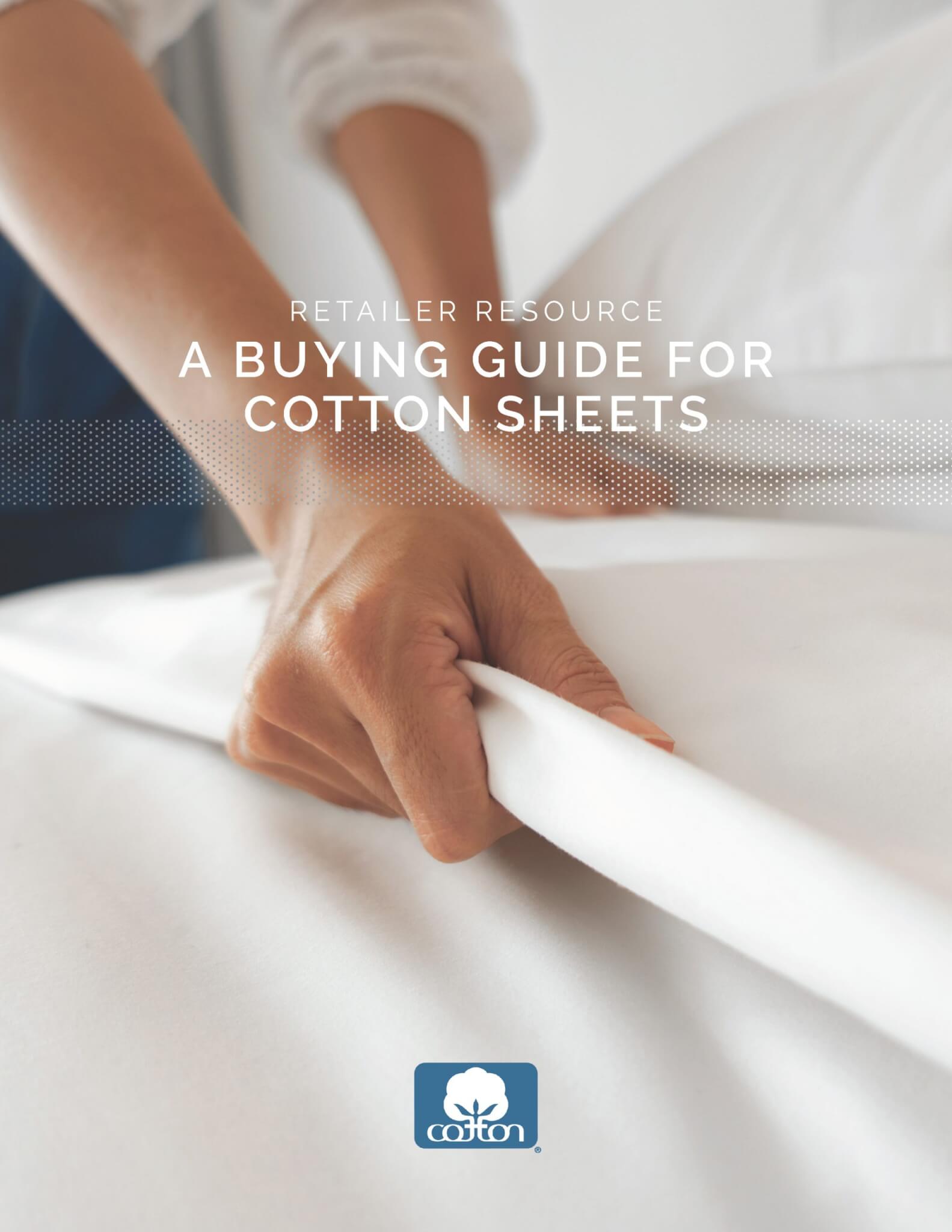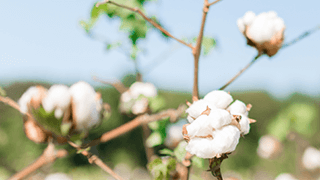Cotton Home Textiles
Cotton—Delivering All the Comforts of Home
When it comes to designing a comfortable living space, research tells us that consumers love cotton. After all, it’s soft, natural, breathable, and hypoallergenic—everything your customers want for their homes. Absorbent towels. Fluffy blankets. Cool sheets. Easy-to-clean fabrics. From bedding and linens to upholstery, curtains, and more—there’s something comforting and cozy about cotton textiles.
That’s why cotton remains the number one fiber preferred for home textile products in the U.S. consumer market.1 Products made with cotton reassure customers that they’re getting a natural product that’s sure to be comfortable and durable.
Known for its quality, cotton offers high performance in its most natural state—and can also be enhanced with technology for improved absorption, temperature regulation, cooling, breathability, and moisture management for the most comfortable home textiles.

Consumer Perceptions of Cotton
Download Supply Chain Insights: Home Textiles in the U.S. Market | Home Textiles in the Global Market

73% of consumers say 100% cotton is important when shopping for home textiles.1

75% of consumers agree that better quality products are made from natural fibers like cotton.2

91% of consumers believe cotton is the safest fiber for the environment.2
The Cotton Advantage: Delivering What Consumers Want in Home Fashions
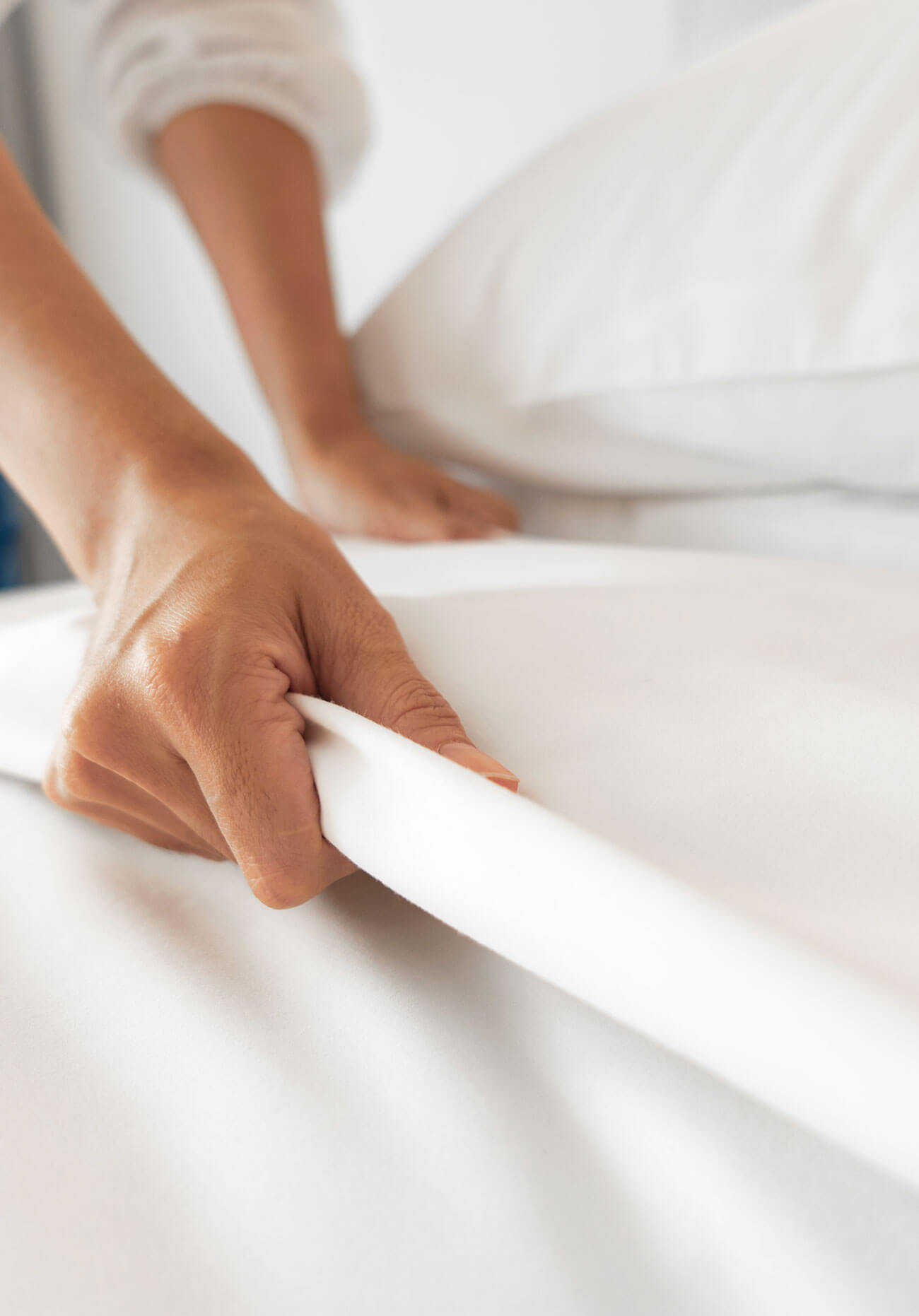
Natural
Cotton is harvested straight from a plant—making it a great choice for sensitive skin.3
Soft
Cotton is inherently soft to the touch which makes it a top consumer choice for home textiles.
Breathable
Naturally porous, cotton allows for easy transfer of air and moisture for the utmost comfort in bedding.
Absorbent
Cotton fibers can quickly absorb moisture for improved performance in towels and other home products.
Sustainable
Biodegradable,1 circular, and recyclable,2 cotton can be an environmentally friendly option for textiles.
Rest Easy With Cotton
Sleep wellness is a hot consumer topic—which means your customers are gaining greater awareness about the importance of getting a good night’s rest. Research confirms that cotton is an ideal fabric for sleeping and achieving deep and rejuvenating sleep6—which is critical for physical, mental, and emotional health.
The natural inherent properties of cotton mean it’s soft, breathable, and naturally thermo-regulating—making it the perfect choice for cozy, comfortable bedding.
What crucial factors go into choosing cotton sheets as an option for your customer? Download our Retailer Resource: A Buying Guide for Cotton Sheets.
![]()
![]()
![]()
![]()
Naturally Thermo-Regulating. Body temperature and comfortable bedding and clothing play a critical role in the quest for deep sleep. Controlled laboratory studies show that cotton keeps you cooler while sleeping, as it maintains the decrease of body temperature after sleep onset. Those resting on cotton registered the least brain activity during the study and fewer fluctuations in body temperature compared to other fibers, indicating deeper sleep.6
Enhanced Performance Options for Cotton Bedding
Ideal options for consumers who struggle with night sweats or temperature regulation.
Wick moisture, dry faster, and increase comfort with the TransDRY® technology for woven and knit bedding. The technology is a yarn application that creates alternating ends of treated yarns, allowing for moisture to move and spread.
Transfer moisture directionally away from the body with the WICKING WINDOWS™ technology. Applied as a print application on the technical back of woven or knit fabrics, the technology dries faster and improves overall comfort.
Naturally Breathable. Cotton’s inherent breathability means humidity easily passes through the fabric, leading to an ideal microclimate against the surface of the skin. Cotton naturally reduces thermal discomfort due to its ability to transfer excess heat from the skin to the outside environment.6 This means cotton bedding can help the body’s moisture to evaporate quickly and comfortably.
Naturally Hypoallergenic. A naturally gentle, hypoallergenic fiber,3 cotton is commonly recommended by dermatologists for those with skin sensitivities or allergies. Cotton’s soft, soothing texture is the ideal material when you want to wrap yourself up in unparalleled comfort.
Naturally Odor-Resistant. Cotton fibers release body odors during washing, leading to fresh-smelling fabrics. Polyester, on the other hand, binds with odor molecules, leading to a foul smell that typically requires antibacterial technology to control.7

WEBINAR | Sleep Better with Cotton
In this webinar, cotton experts discuss:
- Recent studies on sleep and hypoallergenic properties of cotton
- Research on polyester’s effects on sleep
- Technologies and constructions that can enhance the natural comfort of cotton
- Consumer insights impacting your product development decisions
Download Sleep Better with Cotton slides.
Originally played 9/16/21
The Sustainability of Cotton
Cotton Incorporated is committed to promoting sustainability and environmental responsibility. As a 100% natural fiber option, choosing cotton can help combat rising environmental problems like macroplastic and microplastic pollution. The cotton industry has made great strides and continues to promote responsible cotton production practices through reductions in greenhouse gas emissions, better land-use efficiency, and decreased utilization of water and energy in the production of cotton.
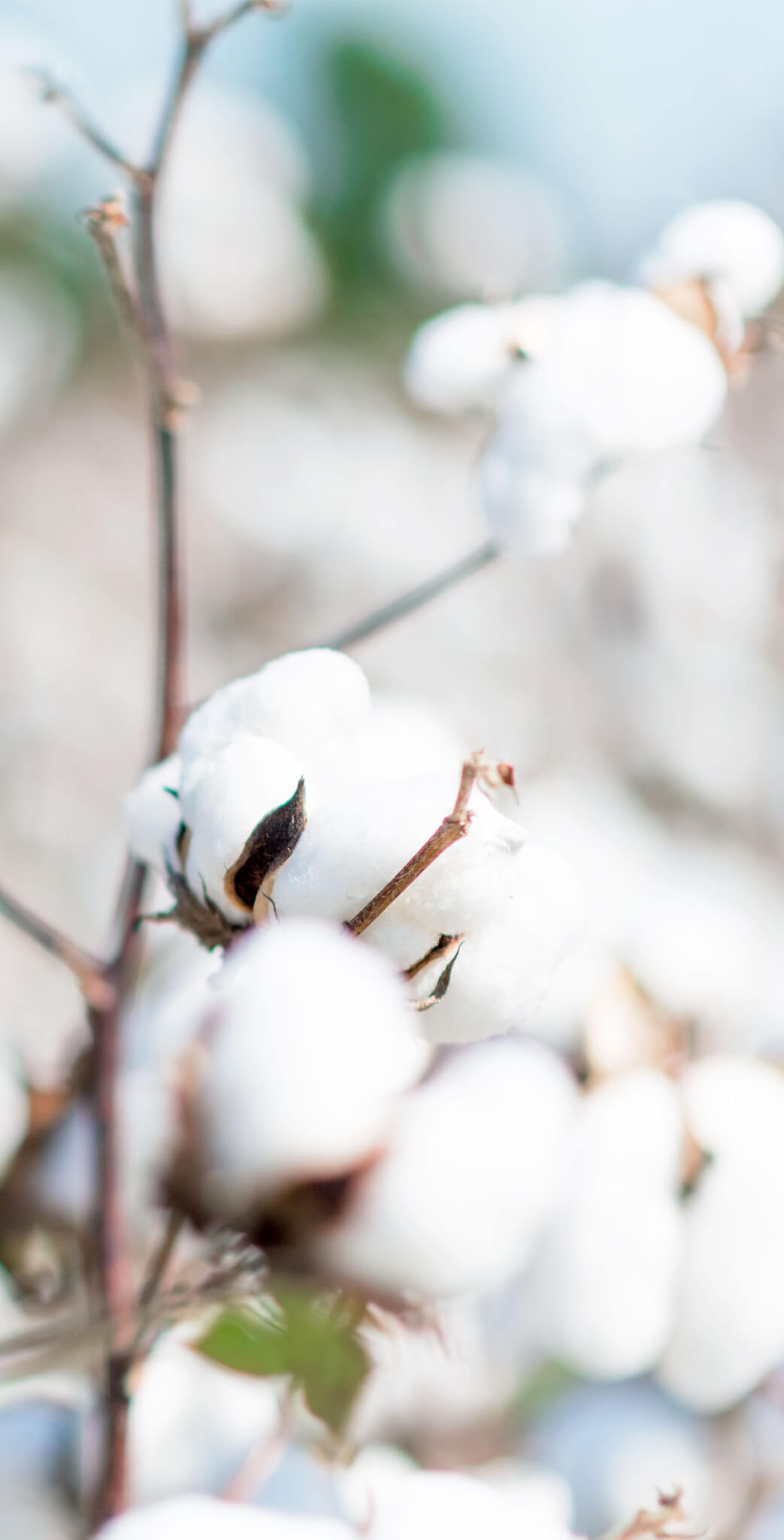
Biodegradable and Recyclable. Cotton biodegrades quickly in aquatic and soil environments, breaking down and releasing nutrients back into the environment. In fact, cotton breaks down 97% faster than polyester in marine environments and is a potential solution to the microfiber pollution issue.4 Additionally, cotton is made from 99.9% pure plant cellulose. As a natural fiber, cotton textiles can be recycled into many different uses once they have reached the end of their first use, such as:
- Stuffing for pillows, comforters, and mattresses
- Insulation for homes, automobiles, coolers, and shipping materials
- Rags, mops, and other secondary markets
Reduced Impact. American cotton producers have made great progress over the last 30 years in reducing their impact on the environment. And, what’s more, they have pledged to continue this effort by setting sustainable goals and creating tools to benchmark progress for the future. U.S. growers have reduced pesticide applications by 50%, reduced irrigated water applications by 45%, and increased fiber production without using more land.8 Best practices employed by U.S. growers are being shared with global cotton farmers to increase awareness and facilitate the continuous improvement of all cotton farmers worldwide.
Traceable Supply Chain. American-grown cotton is both traceable and transparent from the textile mill to the gin. This clarity within the supply chain assures that companies know where their raw material is produced and the sustainability practices that have been used to produce it.
Marketing Advantage—The Seal of Cotton Trademark
Download Supply Chain Insights: Seal of Cotton
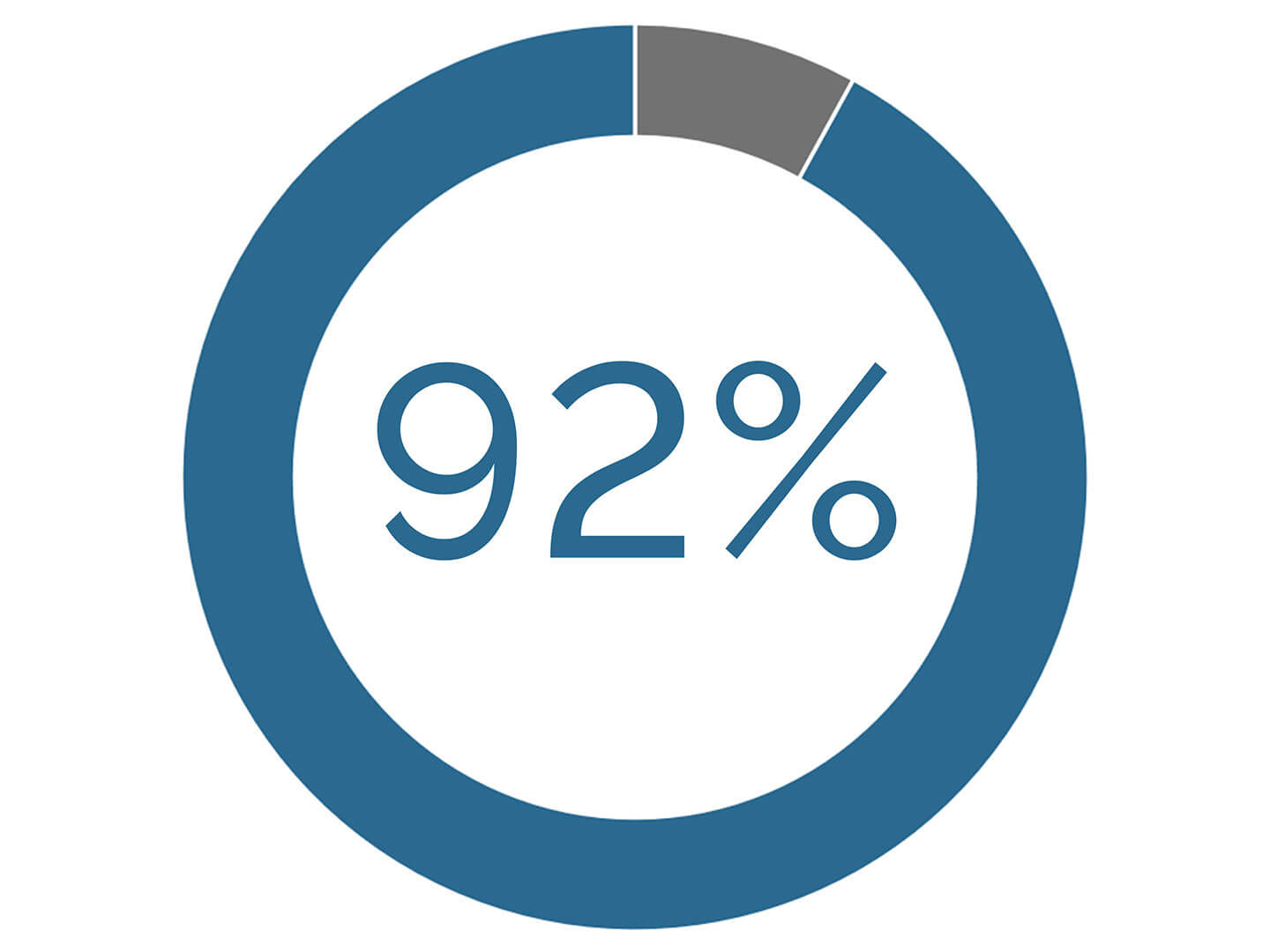
92% of consumers say the Seal of Cotton helps them identify cotton products.9
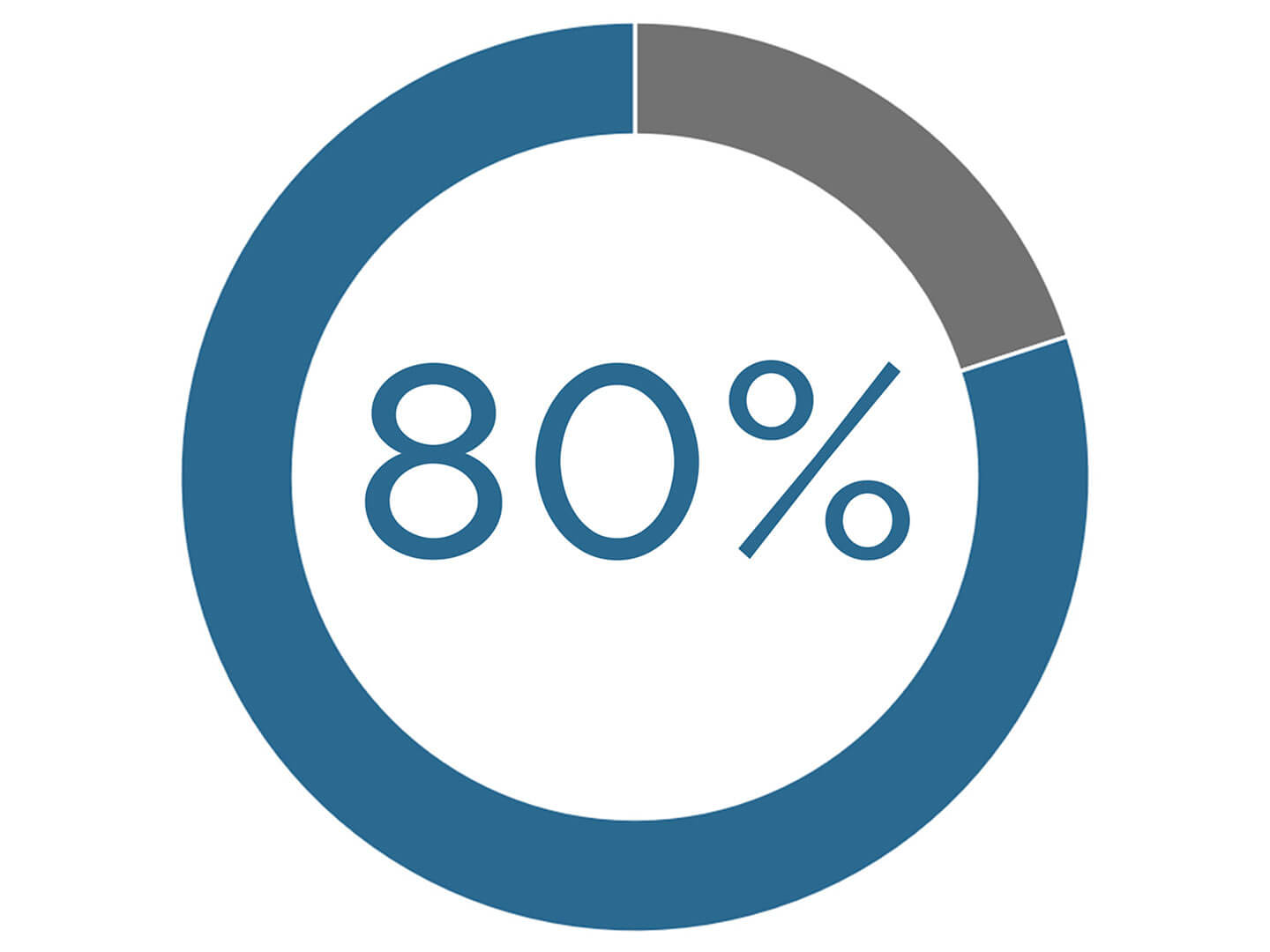
80% or more consumers trust that products with the Seal of Cotton will be soft, comfortable, and natural.9
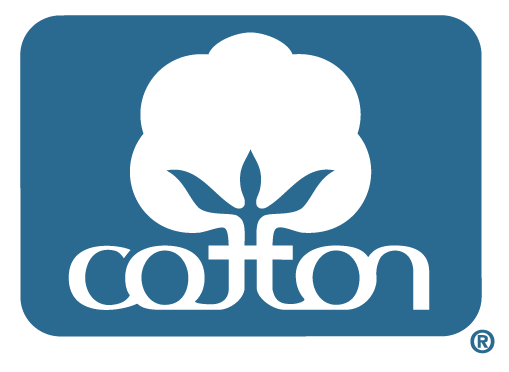
When it comes to home textiles, consumers are more discerning about their fiber selections and are more likely to check the label for fiber content information.1 Make it easy for them to see that your home textile products are 100% cotton with the Seal of Cotton trademark.
Cotton Incorporated is pleased to offer the opportunity for you to leverage the marketing power, credibility, and visibility that comes with the Seal of Cotton trademark by licensing the mark for your 100% cotton home textile products. For more information, contact Marcy Gang, an executive account manager for the home market at Cotton Incorporated.
Inspired Home Fashions
The natural softness and durability of cotton make it the perfect choice for home textiles—but we know that consumers often make their selections based on the latest trends.
From trendy kitchen and bath linens to the most beautiful textiles for cozy bedroom and living spaces—we’re here to inspire you with our curated collection designed specifically for the home textiles market. As a capsule collection of inspirational fabric ideas that incorporate new yarns, interesting woven or knit fabric structures, and unique dyeing and finishing techniques, our home collection demonstrates the limitless possibilities of cotton for the world of home fashion.
Cotton Incorporated can provide swatches along with all the technical specifications to help you bring these cotton ideas to life with your own global mill partners. Our trend analyst team is also available to assist you in your own research of the latest trends in cotton home fashions.
Whether you need fabric inspiration or technical guidance, Cotton Incorporated is here to serve as your cotton home resource.
U.S. Cotton Home Textile Manufacturers
1888 Mills
Website: 1888mills.com
Location: Oak Brook, IL
Capabilities: Bedspreads, towels, hospitality, healthcare markets
American Merchant
Website: americanmerchantusa.com
Location: Briston, VA
Capabilities: Towels
Carolina Specialty Fabrics
Website: carolinaspecialtyfabtics.com
Location: Newton, NC
Capabilities: Cotton flannel, canvas, double cloth flannel blanket
Crypton Fabrics
Website: crypton.com
Location: Detroit, MI
Capabilities: Performance upholstery fabrics, jacquard woven home fabrics
Family Heirloom Weavers
Website: familyheirloomweavers.com
Location: Red Lion, PA
Capabilities: Range of yarn-dyed home fabrics. Specialize in historically accurate and authentic reproduction textiles on vintage looms.
Hamrick
Website: hamrickmills.com
Location: Gaffney, SC
Capabilities: Cotton sheeting
Inman Mills
Website: inmanmills.com
Location: Inman, SC
Capabilities: Home furnishings fabrics
JB Martin
Website: jbmartin.com
Location: Leesville, SC
Capabilities: Cotton velvets for home
Manual Woodworkers
Website: manualww.com
Location: Hendersonville, NC
Capabilities: Top of the bed, decorative
The Oriole Mill
Website: theoriolemill.com
Location: Hendersonville, NC
Capabilities: Dobby and jacquard throws, blankets, duvet covers, kitchen textiles
Pure Country Weavers
Website: purecountry.com
Location: Lynn, NC
Capabilities: Throws, pillows
Standard Textile
Website: standardtextilehome.com
Location: SC, GA
Capabilities: Towels, sheets, top of the bed
Thomaston Mills
Website: thomastonmills.com
Location: Thomaston, GA
Capabilities: Bedspread, duvet, sheeting, toweling for hotels, hospitals, and similar
Valdese Weavers
Website: valdeseweavers.com/Circa1801.aspx
Location: Valdese, NC
Capabilities: 1801 upholstery line uses cotton
Weavetec
Website: weavetec.com
Location: Blacksburg, SC
Capabilities: Dobby, jacquard woven home furnishings

1. Cotton Incorporated’s 2020 Home Textile Consumer Survey.
2. Cotton Incorporated’s 2020 Lifestyle Monitor™ Survey.
3. Cotton Incorporated 2019 clinical trials on Determination of the Irritating and Sensitizing Propensities of Mechanically Cleaned and Purified Cotton on Human Skin.
4. Cotton Incorporated and North Carolina State University, Biodegradability Research (2019); research completed 20+ days.
5. Cotton products are recyclable only in a few communities that have appropriate recycling facilities.
6. Comfort Testing Research, April 2014. AAT Research.
7. McQueen, Dr. Rachel et al. McQueen, Dr. Rachel. The Retention and Build-up of Body Odor in Cotton Fabrics: A Field Trial. U of Alberta, 2012.
8. Field to Market: The Alliance for Sustainable Agriculture, 2016.
9. Cotton Incorporated’s 2020 Seal of Cotton research.
